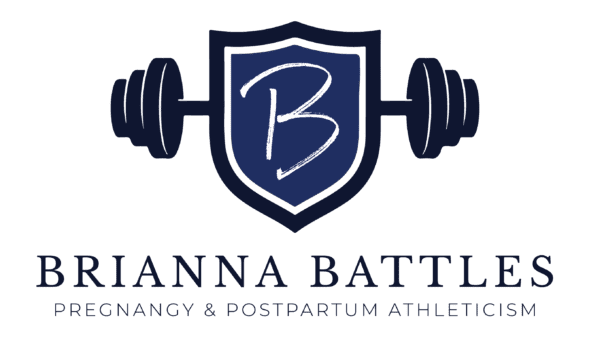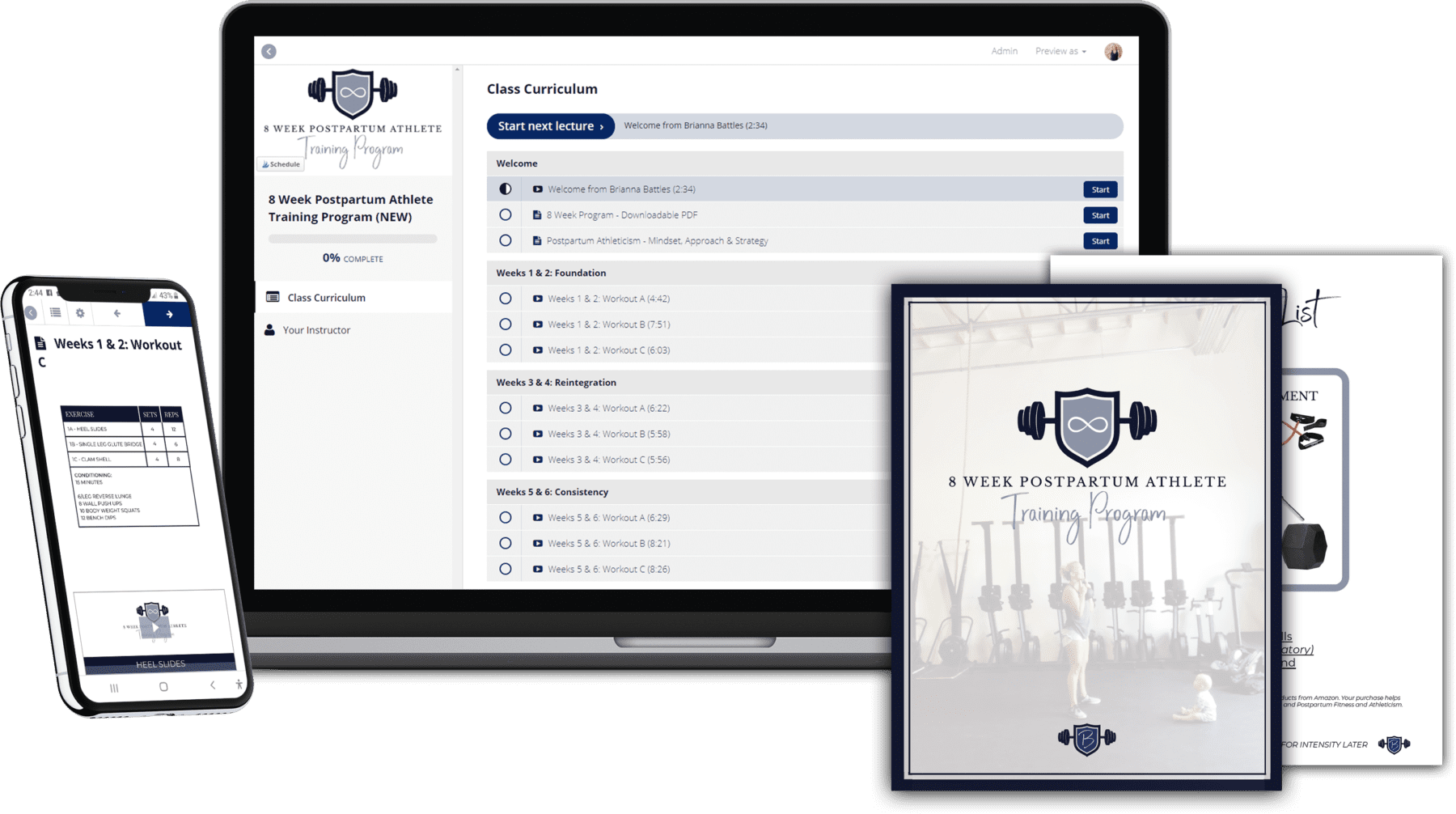Coaches act as the first line of defense for the people they influence. A good coach knows that what we do and how we do it extends FAR beyond exercises and a kick-ass training session. What makes us good at what we do is our ability to connect, observe and be creative with context.
Anyone can write a workout that makes you sweat, but not many can write programs, communicate, and consider the evolving circumstances and changes our clients and athletes experience throughout our time working with them.
The focus on female-specific training considerations has evolved somewhat over the years, HOWEVER, female athletes’ considerations extend further than female athlete triad, ACL injuries, and eating disorders. We have seen an increase in “pre and postnatal” information, but much of it is still generic, unrelatable, outdated and too “special population” feeling. “I don’t coach that population.” BUT...if you’re coaching women, you do.
I get it, because I NEVER wanted to work with pregnant or postpartum women, until I (a strength and conditioning coach and athlete) became one, and realized that it’s not just about this specific time in their life and family, it’s about supporting the rest of their athleticism and goals, training, health and function now and ongoing.
I realized that there were very few coaches who “got it” and got me. I didn’t need to be told what I wanted to hear, I needed context and support, not just generalizations or extreme examples and messages. It turns out, I wasn’t alone in feeling that way. Women from all over the world are desperate for their coaches to get it. This is a significant reason why I created Pregnancy & Postpartum Athleticism, an online certification for coaches.
I polled my Instagram and Facebook group and want to share what they wish their coaches would have known about coaching them during pregnancy and postpartum return:
“Keeping my program the same and saying “just do the best you can” was not helpful.”
“When modifications need to begin in pregnancy.”
“That just because I look healed, I’m not and need even more modifications and assistance after pregnancy.”
“Offering coaching for pregnancy vs just scaling the workout.”
“Anything, I had no place to turn for safe exercise and felt unsupported.”
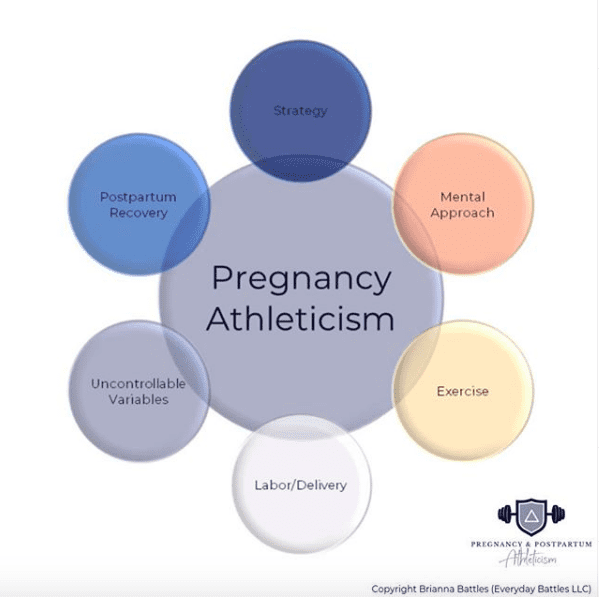
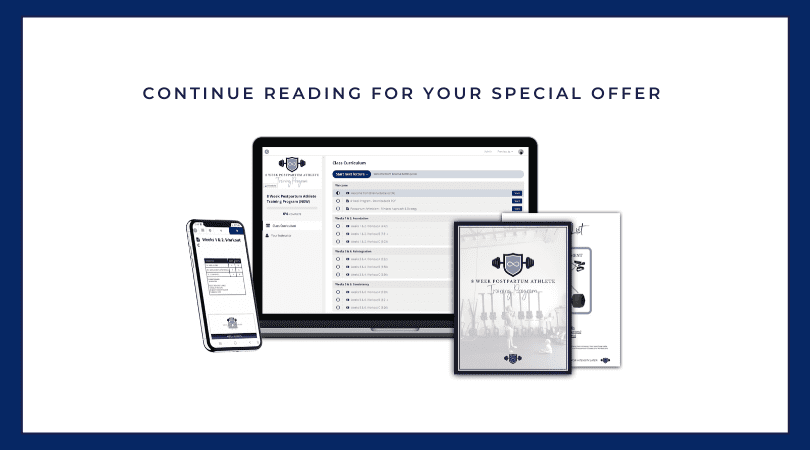
A few coaches became who they needed by becoming a P&PA Coach. When I asked them, they provided a bit more context from a slightly different scope.
“I wish the focus was more on what my body needed than making my modifications match movements programmed that day.”
“That if you don’t know, don’t make assumptions. That if it seems scary then it’s probably because you don’t understand it, so ask questions and seek further information but don’t lead with fear and pseudoscience. It’s ok to admit when you don’t know something but you don’t have to know everything to be helpful. Share what you know and refer when you don’t.”
“We train today for tomorrow.”
“I wish my coach (meaning me before I knew what I know now) would have understood risk vs reward and applauded exercise modifications and adjusted mindsets for preg/pp athletes rather than praising and glorifying fitness levels.”
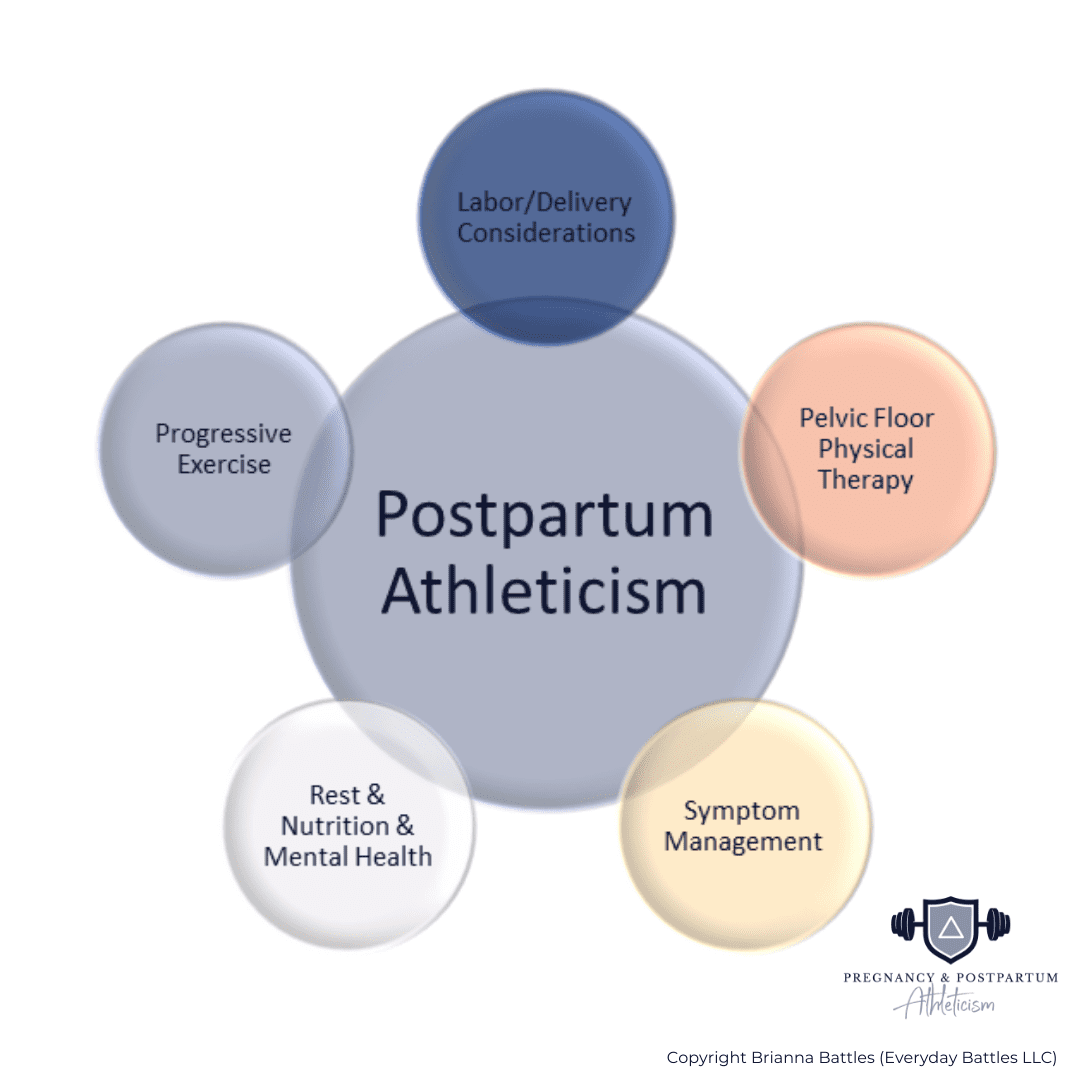
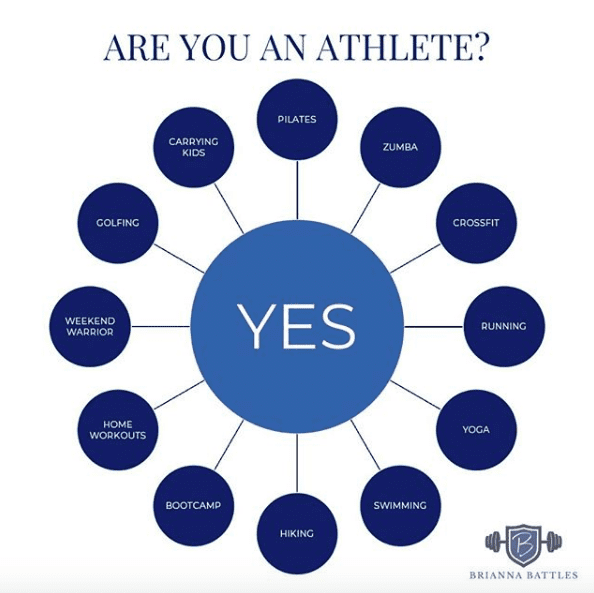
This isn’t intended to be a call out, it’s intended to showcase how desperately needed we are, that their needs extend beyond generic modifications and applauding the extreme. *Most* of the women (athletes) we work with are not making a run for the Olympics, CrossFit games or competing professionally (if they are, send them my way and I can help direct and refer!).
We can help our athletes navigate a middle ground of approach through pregnancy and postpartum, across the spectrum of their interests, needs, abilities, and goals.
Here are 3 things you can do RIGHT now that will help the women you’re coaching through pregnancy and postpartum.
CONNECT:
Address this significant transition in their life. There can be a lot of mixed emotions during pregnancy and postpartum and when you’re able to clearly communicate and understand her current mindset, you’ll be able to help guide what’s to come.
One way of doing this is by asking her what her long term goal is. What does she want her motherhood to experience to look like? Chances are, she will answer something along the lines of “healthy/fit pregnancy, healthy baby, “easy” delivery and return to what she wants to do without too many core/pelvic health symptoms, struggles, injuries, etc.” These are valid goals, but also goals that we don’t (and she doesn’t) have that much control over.
What do we as coaches have control of?
What we ask and what we prescribe according to their CURRENT needs on behalf of long term goals. This helps dial in the “more than modifications” approach and “can I vs should I” considerations that many athletes struggle to implement with big picture context.
CONSIDER:
Her insides are changing, her outsides are changing and therefore, her training need to also change. Pregnant and postpartum women are not delicate but they also aren’t invincible. They have evolving needs, abilities and reasons and their coaches need to support that, not challenge that. You don’t need to completely overhaul her training regimen, but it should adjust in a way that sets her up (within control), not back out of ego, fear or coaching negligence. She is getting a LOT of noise from maybe her conservative doctor who doesn’t get what she does, or she’s comparing herself to another pregnant/new mom on Instagram or she’s terrified of losing her abilities, identity, and routine. You are there to assure her that this is not forever, it’s just for now and that together you’re here to support her NOW on behalf of a year from now, 10 years from now and beyond.
Does she *need* to lift so heavy that she’s straining coming out of her squat at 7 months pregnant? What’s the benefit? What’s the potential risk? What are her pressure management tendencies (does she bear down/set her lift into her pelvic floor? Does she thrust her rib cage up and take a big breath before squatting?).
Does she *need* to sign up for a half marathon at 4 months postpartum? What’s the benefit? What’s the potential risk? What was her delivery like? Has she seen a Pelvic Floor Physical Therapist? Is she leaking, or feeling pelvic pressure, discomfort or pain? Has she trained up to this demand from a healing and strength perspective?
It’s not CAN she, it’s SHOULD she, and it’s up to you to help GUIDE considerations and decisions, not DICTATE.
DIASTASIS RECTI & ATHLETICISM
Step away from the confusing and often harmful mixed messages surrounding diastasis recti and download this e-book to broaden your understanding, education, and awareness on this condition.
CORE & PELVIC FLOOR:
It’s likely that you are her both have at least heard about diastasis recti (a completely NORMAL part of pregnancy, that occurs for ALL women). There’s a lot of fear and ideals of prevention, but really, it’s about observing breath, positional, tension and movement tendencies, and countering them in the ways you can control, as influenced by a changing/changed body.
Diastasis can be obvious to spot, “coning” is just displacement of pressure forward into the linea alba (line of the 6 pack abs). With an expanding abdomen and force produced during certain movements, it’s common to see coning. This isn’t “bad” unless it’s overdone, exaggerated or ignored. The baby is already placing demand on the midline, perhaps the movements we coach should try to reduce or displace that demand? Yes. The same considerations exist for a woman working to improve her diastasis postpartum.
You can read specifically about diastasis recti (pregnancy, training, symptoms, strategies, etc) HERE.
Discussion of the pelvic floor has also had a “glow up” in recent years. The pelvic floor is the base of our torso, musculature that supports pelvic health function and coordination with the rest of the core system.
It’s not about having a STRONG pelvic floor, it’s about having a pelvic floor that coordinates and responds to the variety of tasks/demands- from bowel movements and activities of daily living, to jumping, running and squatting without peeing.
Coaches often assume that it’s best to “progressively overload” the pelvic floor in a quest for strengthening it during pregnancy and postpartum. However, women should not be kegaling their way through training, nor should they be unaware of their vagina tendencies. How can coaches help bring awareness, without being awkward?
If you can talk about knee and shoulder physiology, function and structure, we can talk about vaginas. It doesn’t have to be explicit details of anatomy, but an overall understanding of the impact pregnancy, delivery, symptoms, injuries, and athletic performance has on the pelvic floor.
Examples:
Does she need to jump rope the baby out? Probably not. That’s not how it works.
Should she thrown on a weight belt at 3 months postpartum when she is still rehabbing her diastasis and pelvic floor?
No, she needs to continue building her capacity through rehab and basic, trustworthy strength progression. A weight belt is a tool that is built to, not overused before strength is established.
A coach can understand an athlete’s readiness from an objective perspective, and helping the athlete logic through her readiness vs emotional desperation to maintain, get back or challenge.
Like with any other athletic performance conversation, a coach helps an athlete know when and how to deload and when and how to progress. We have different seasons for different reasons, we are not supposed to peak and maintain that peak; pregnancy and rehabbing/rebuilding postpartum is an opportunity to dial in movement, core/pelvic health, mindset and training basics.
We are the first line of defense for the women we coach.
There are millions of women having babies and a significant amount of women who are pursuing a variety of fitness goals. We need coaches who can support their efforts through this chapter in their life, and athleticism so that they have context for how to approach what they want to do and need to do.
It’s not our job to know everything, it is our job to refer, collaborate and learn more about our client’s needs.
To find a P&PA Coach near you, check out our professional map
To BECOME a Pregnancy & Postpartum Athleticism Coach, click here.
For additional programs and resources for pregnant athletes and postpartum athletes click here
I am with you, and encourage you to join us in supporting pregnant and postpartum athletes around the world.
Bri
Are you a postpartum athlete looking to improve and progress your body?
My 8-week training program can be purchased here.
Use "50OFFBLOG" at checkout for $50 off the program

An online course for coaches, trainers and practitioners

Are you pregnant and everyone has you convinced that “OMG diastasis” or “just listen to your body, do what you’ve always done!” Neither are ok or are enough info.
